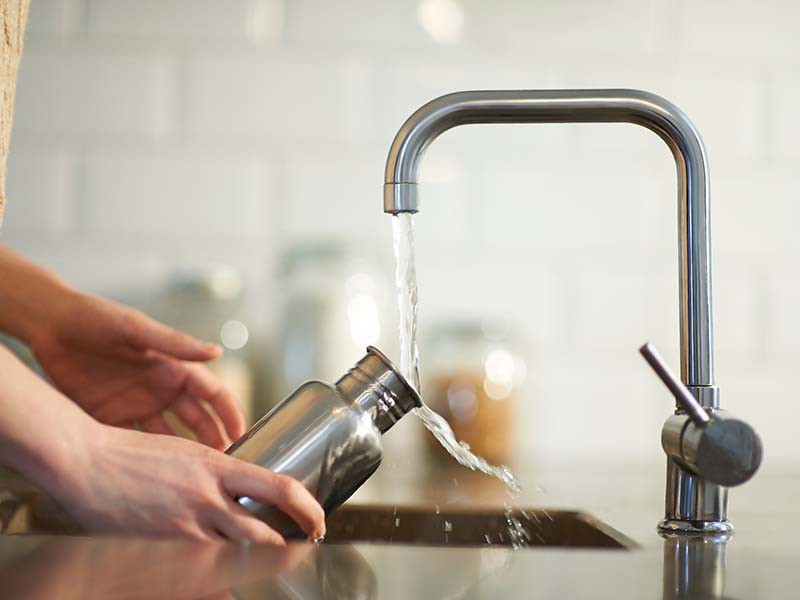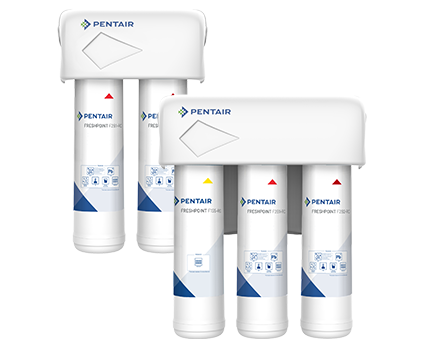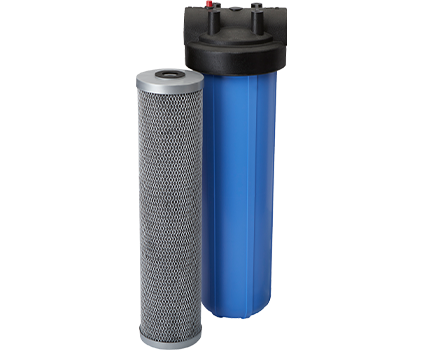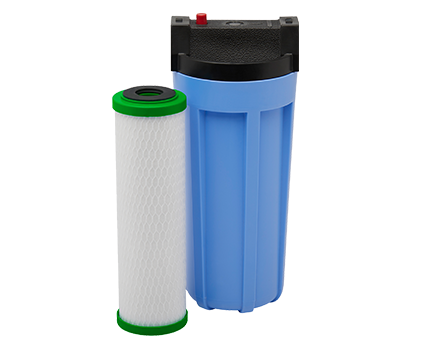
PFOA/PFOS Certified Products
Great-tasting, high-quality water throughout the home!
We are proud to offer solutions that give customers the peace of mind that comes with great-tasting, high-quality water throughout the home. Pentair offers water filtration products that are certified to reduce PFAS (commonly referred to as “forever chemicals”) concentrations in drinking water by up to 99.7% when used as directed.*
Discover now our solutions to reduce PFAS:
Freshpoint two/three stage filtration system
- Certified to reduce up to 98% of PFOA/PFOS*
- Effectively reduces sediment and 60+ contaminants**
- 3 stage is the ideal solution for water impacted by heavy sediment
- 2 stage is the ideal solution for water impacted by low sediment
FloPlus Protect 20 Big Blue
SKU Housing 150253 / SKU Cartridge 655223-43
- The combination of BB Housing and FloPlus protect cartridge has been tested to reduce up to 98% of PFOA/PFOS*
- Maximum filtration with minimal pressure drop
ChlorPlus Protect 10 System
SKU Housing 150102 / SKU Cartridge 655226-43
- The assembly of this housing and ChlorPlus Protect cartridge has been tested to reduce up to 98% of PFOA/PFOS*
- Provides premium sediment, chlorine, and chloramine reduction
What are PFAS contaminants?
PFAS are industrial contaminants whose effects are just now starting to be understood. PFAS is a broad category that many chemicals fall under — so first, let's take a look at some common acronyms used when referring to specific types of chemicals within this group.
According to the European Environment Agency, Per- and polyfluoroalkyl substances, or PFAS for short, are a group of man-made chemicals used to manufacture hundreds of products. PFAS are used in a variety of industries and can be found in the environment and human body. PFAS usage in the United States dates back to the 1940s.
The two most commonly produced PFAS are perfluorooctane sulfonic acid (PFOS) and perfluorooctanoic acid (PFOA). Scientists have studied the effects of these two specific chemicals the most, but there are over 4,000 unique PFAS.
Why are PFAS a concern?
In recent years, there has been growing awareness and concern over PFAS and the potential health implications that could occur as a result of exposure to these pollutants.
PFOA and PFOS are commonly known as “forever chemicals” because they do not easily degrade. This, combined with their widespread use, means that PFAS are present virtually everywhere in the environment. They have been found in the blood of people and animals, and at low levels in a variety of food products.
According to The Forever Pollution Project – Journalists tracking PFAS across Europe, scientific studies have shown that exposure to some PFAS in the environment may be linked to harmful health effects in humans and animals.

Where do PFAS come from?
A variety of manufactured products contain PFAS, especially to achieve water-repellency. According to the European Chemicals Agency (ECHA), some conventional products that feature PFAS include common items, like firefighting foam, non-stick pans, pizza boxes, fast food wrappers, cleaning products, polishes, cosmetics, shoes, and clothing.
Significant sources of PFAS contamination in the environment are sites where PFAS manufacturing occurs or where firefighting training happens. Many places where groups have identified PFAS contamination are military bases and airports where firefighters use foam to conduct drills and training exercises. The foam later washes into streams and waterways, becoming a water pollutant.
How to test your water for PFAS
The French newspaper Le Monde created an interactive map: Forever pollution: Explore the map of Europe's PFAS contamination showing the widespread contamination of PFAS.
According to Le Monde, there are more than 17'000 sites where PFAS contamination has been detected across Europe.
* The models FloPlus Protect 20BB, ChlorPlus Protect 10, F2000- B2B, F3000-B2B are certified by IAPMO R&T against NSF/ANSI 53 for the reduction of perfluorooctanoic acid (PFOA) and perfluorooctane sulfonate (PFOS).
** F2000-B2B, F3000-B2B systems are Tested and Certified by NSF International against NSF/ANSI Standards 42 and 53 for the reduction of the claims specified in the Performance Data Sheet and at www.nsf.org.


